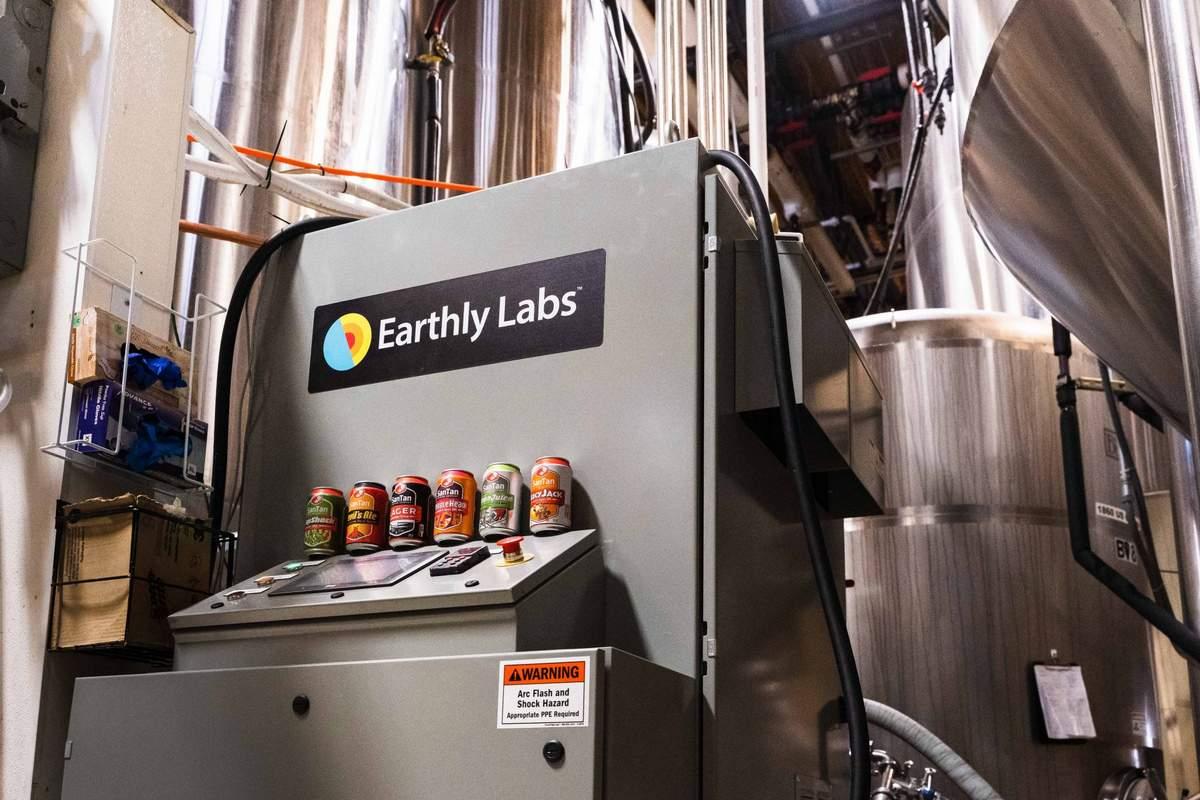Ecocentricity Blog: Beer That Recycles Its Carbon Dioxide
By: John A. Lanier

Ecocentricity Blog: Beer that Recycles its Carbon Dioxide
It’s been nearly a year since I last wrote a blog about beer. That feels like too long, so let’s go ahead and rectify that. The fun thing about this post is that it’s not just about beer - it’s about a way to help solve climate change, advance the circular economy, and make beer taste better all at the same time! So let’s crack one open and dive in.
Beer is an Art and a Science
We start with the process of brewing. Beer is the end product of taking four ingredients and putting them through a series of biochemical reactions. The four ingredients are water, barley, hops, and yeast. The biochemical reactions include malting the barley, creating the mash, boiling the wort, and fermentation (remember that last one, because we are going to come back to it in a moment). Lastly, brewers need some way to get their beer to us thirsty folk, so commercial breweries have complex industrial processes for kegging/bottling/canning the beer.
There are two times when carbon dioxide (CO2) plays a part in the brewing process detailed above. The first comes during fermentation, when the yeast starts chowing down on the sugars in the wort. More scientifically, the yeast breaks the bonds of glucose molecules through a series of reactions, culminating in two main chemical byproducts - CO2 and CH3-CH2-OH. That bit of alphanumeric soup at the end has another name - ethanol, or ethyl alcohol. In other words, the yeast is what gives beer both its carbonation (the CO2) and its alcohol. For a variety of reasons though, which mostly relate to getting the flavor of the beer just right, quite a bit of the CO2 from fermentation is vented out of the brewing process.
Which brings us to the second time CO2 is involved in the process. When getting ready to keg, bottle or can the beer, brewers typically add a bit more CO2 to it so that the beer has enough carbonation to not taste flat. Most will purchase the CO2 they need from a supplier of the gas. So think about that for a second. During fermentation, yeast makes CO2 that brewers vent out into the air. Then later, those brewers pay for the same gas they let disperse into the atmosphere (where it inconveniently contributes to the warming of our planet). Unfortunately, commercial CO2 suppliers generally create it by burning natural gas. Wouldn’t it be better to … you know … save some of that CO2 from the fermentation process for later?
Hooray Beer that Recycles Its CO2!
Yes, yes it would. And that right there is the business model of Earthly Labs. They developed a small-scale carbon capture system specifically designed for beer fermentation. Affectionately named “CiCi,” the system receives the vented gas from the fermentation process and then strips out everything but the CO2, storing it for later use in the process. It’s a brilliant circular economy and climate change solution. According to their calculations, each CiCi unit has the annual ability to reduce carbon emissions equivalent to the planting of 1600 trees per year.
They have multiple success stories since their founding in 2016. On their YouTube channel, you can find examples of clients using CiCi from Jackson Hole, Wyoming to Austin, Texas to Nashville, Tennessee. Just last month, the Tampa Bay Times wrote about a brewery in Clearwater, Florida that has installed the system.
As an individual who has a particular fondness for good beer, I was also keen to hear the brewer in Wyoming talk about the difference in quality CiCi delivered. Apparently, capturing your own CO2 makes for tastier beer, because when brewers buy the gas from providers, it is not quite as pure as what CiCi can deliver. This is a sentiment that was echoed by the Florida brewery as well.
On the off chance that any of you are friends with brewers, bring Earthly Labs up. As far as I’m concerned, I don’t see any reason why their solution shouldn’t be industry standard. Not only do they have cool technology, but they also have set big goals for being part of solving the climate crisis. They want to scale to the point where they remove 1 billion tonnes of CO2 from the atmosphere, and that’s a really big number. I guess we’ll have to get to work drinking more beer that recycles its own CO2 (but, as always, please drink responsibly!).

